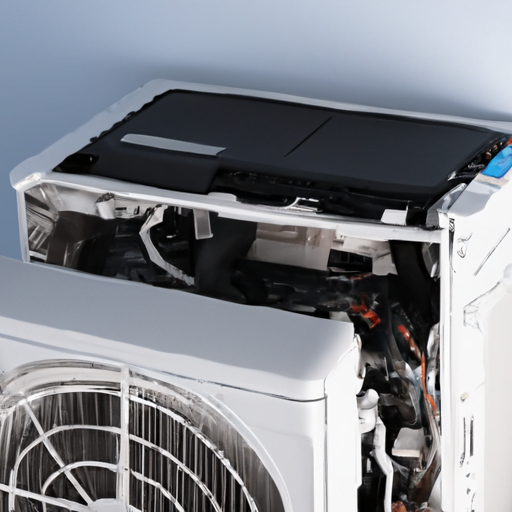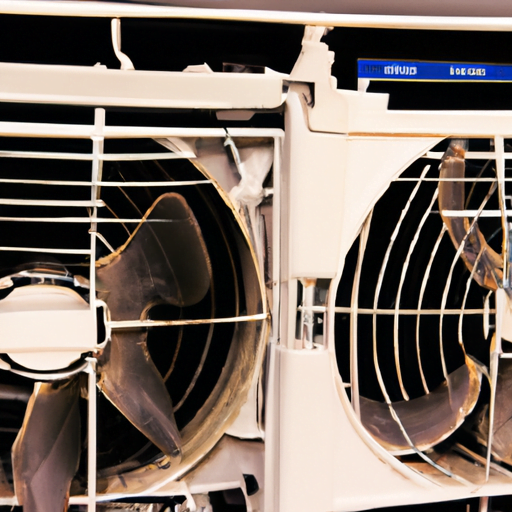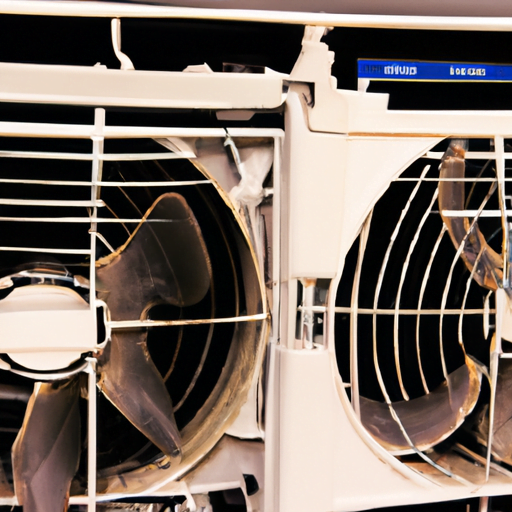So, you’ve probably heard about heat pump systems and how they can be great for off-grid living. They’re known for their energy efficiency and ability to provide both heating and cooling. But have you ever wondered what the major disadvantage of these systems is? Well, I’m here to tell you.
The major disadvantage of a heat pump system is its reliance on electricity. Unlike other heating systems that can run on alternative fuel sources such as gas or oil, heat pump systems need electricity to operate. This can be a problem if you’re living off-grid and don’t have a reliable source of electricity.
Now, don’t get me wrong, heat pump systems can still be a great option for off-grid living if you have a reliable and sustainable source of electricity. And in our upcoming article, we’ll dive deeper into the pros and cons of heat pump systems, as well as explore alternative heating options for those living off-grid. So stay tuned to learn more!

Introduction
Heat pump systems are a popular and efficient option for heating and cooling homes. These systems use electricity to transfer heat from a cool space to a warm space, making them an environmentally friendly alternative to traditional heating and cooling methods. While heat pump systems have numerous advantages, it is important to consider their major disadvantage as well. In this article, we will explore the major drawback of heat pump systems and discuss its impact on extremely cold climates and effectiveness in heating compared to cooling. Additionally, we will address ways to mitigate this disadvantage and improve the overall performance of heat pump systems.
Overview of Heat Pump Systems
Before diving into the major disadvantage, let us first gain a comprehensive understanding of heat pump systems. A heat pump system is a mechanical device that is designed to transfer heat from one place to another. It works by extracting heat energy from the air, ground, or water, and then using that energy to provide heating or cooling to a space. This makes heat pump systems versatile and suitable for a wide range of applications, including residential and commercial buildings.
Definition and Functionality of Heat Pump Systems
Heat pump systems operate based on the principle of heat transfer. They are designed to move heat from a lower temperature source (such as outdoor air) to a higher temperature space (such as indoors) by utilizing refrigerant chemicals. These chemicals absorb heat energy from the source and release it at a higher temperature in the desired area.
Types of Heat Pump Systems
There are several types of heat pump systems available, including air source heat pumps, ground source heat pumps (also known as geothermal heat pumps), and water source heat pumps. Air source heat pumps extract heat from the air, while ground source heat pumps utilize the relatively constant temperature of the ground to transfer heat. Water source heat pumps, on the other hand, extract heat from a water source, such as a nearby lake or pond.
Working Principle and Components
The working principle of a heat pump system involves a cycle of refrigerant compression and expansion. The main components of a heat pump system include a compressor, condenser, evaporator, and expansion valve. The compressor pressurizes the gaseous refrigerant, which then flows through the condenser, where it releases heat to the surrounding environment. The refrigerant then enters the evaporator, where it absorbs heat from the source, and finally, the expansion valve reduces the pressure of the refrigerant, restarting the cycle.

Advantages of Heat Pump Systems
Heat pump systems offer several advantages that make them an attractive option for heating and cooling. Let us explore some of these advantages in detail.
Energy Efficiency and Cost Savings
One of the primary advantages of heat pump systems is their energy efficiency. Since heat is transferred rather than generated, heat pump systems can provide heating and cooling at a much lower cost compared to traditional systems. They consume less energy and can generate up to four times the amount of heat energy for the electricity consumed. This leads to significant cost savings on heating and cooling bills.
Environmental Friendliness
Heat pump systems are also highly environmentally friendly. Unlike combustion-based heating systems, heat pump systems do not produce any direct emissions, such as carbon dioxide or pollutants. By utilizing renewable energy sources such as the air, ground, or water, heat pump systems help reduce greenhouse gas emissions and contribute to a cleaner environment.
Versatility and Multiple Applications
Another advantage of heat pump systems is their versatility and ability to be used in multiple applications. They can provide both heating and cooling, eliminating the need for separate systems. Heat pump systems can be installed in various settings, including residential homes, commercial buildings, and even industrial facilities. This versatility makes them suitable for a wide range of heating and cooling needs.
Exploring the Major Disadvantage
While heat pump systems offer numerous benefits, they do have a major disadvantage that needs to be addressed. This disadvantage primarily relates to their performance in extremely cold climates and their effectiveness in heating compared to cooling.
Understanding the Primary Drawback
The primary drawback of heat pump systems lies in their ability to provide sufficient heating during extremely low temperatures. Heat pump systems extract heat energy from the outdoor air, ground, or water, and as the temperature drops, the available heat energy decreases. This can lead to insufficient heating in colder climates, where the outdoor temperature frequently falls below freezing.
Impact on Extremely Cold Climates
In regions that experience extremely cold climates, the performance of heat pump systems can be severely compromised. As the outdoor temperature drops, the heat pump system requires more energy to extract heat from the air, which can result in decreased efficiency and reduced heating capacity. This can lead to discomfort for the occupants and increased reliance on auxiliary heating sources.
Effectiveness in Heating Compared to Cooling
Another aspect that highlights the major disadvantage of heat pump systems is the disparity between their heating and cooling efficiency. While heat pump systems are highly efficient at providing cooling, their ability to generate heat effectively may be compromised. This can be attributed to a combination of factors, including the temperature difference between the heat source and the desired space, and the efficiency of the refrigerant cycle.
Factors Influencing the Disparity in Heating and Cooling
Several factors contribute to the disparity in heating and cooling performance of heat pump systems. Firstly, the outdoor temperature plays a significant role. As the temperature drops, the energy required to extract heat increases, reducing the overall efficiency of the system. Additionally, factors such as insulation, air leakage, and system sizing can also influence the effectiveness of heat pump systems in heating.
Understanding the Primary Drawback
To address the major disadvantage of heat pump systems, it is essential to understand the primary drawback in more detail. It primarily revolves around the issue of insufficient heating during extremely low temperatures.
Insufficient Heating During Extremely Low Temperatures
Heat pump systems rely on the availability of heat energy in the air, ground, or water to provide heating. In extremely cold temperatures, the heat energy available from the external source decreases significantly, making it more challenging for the heat pump system to extract sufficient heat. As a result, the system may struggle to meet the heating demands of the space, leading to discomfort for the occupants.
Increased Reliance on Auxiliary Heating Sources
To compensate for the insufficient heating capacity during extremely low temperatures, heat pump systems often require auxiliary heating sources. These sources, such as electric resistance heaters or gas furnaces, are activated when the heat pump system cannot meet the heating demands on its own. While the use of auxiliary heating sources ensures adequate heating, it can result in increased energy consumption and higher heating costs.
Reduced Efficiency in Heating Mode
Another drawback of heat pump systems in heating mode is their reduced efficiency compared to cooling mode. Due to the temperature difference between the heat source and the desired space, the heat pump system needs to work harder to transfer heat during heating. This increased workload leads to reduced efficiency, resulting in higher energy consumption.




